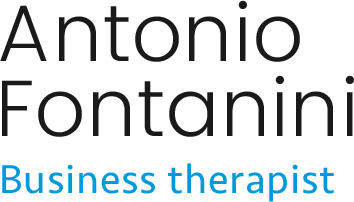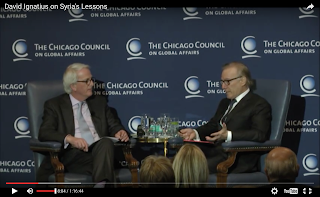Business Investment In A World Beset By Anxiety
They ain’t had any learning.
Still they’re happy as can be
Doin’ what comes naturally.”
Irving Berlin wrote the music and lyrics for the 1946 musical, Annie Get Your Gun that starred Ethel Merman. It was a smash hit with over 1100 performances in New York alone.The advice in the song seems to me to be perfect wisdom for businesses today. “Doin’ what comes naturally” for business is to seek ever expansive markets at ever lower real production costs commensurate with levels of assumed risk.
That is precisely what businesses should be doing now despite the chilling terrorist attacks in Paris and Brussels and what appears to be other insurmountable global obstacles.
China is the throes of a massive growth slowdown and a massive distribution of political power. President Xi is centralizing power in his hands in a fashion not seen since the days of Mao while militarizing the South China Sea.
The countries that had benefitted from China’s rise by supplying it will all manner of raw materials and minerals find their export revenues slashed and their economies dramatically weakened. What looked like the ‘Great African Boom’ has turned into more of growth as usual.
EU members are struggling with the refugee crisis, a possible Brexit, a possible Grexit, an increasingly authoritarian Poland and Hungary, a menacing Vladimir Putin, the threat of ISIS terrorism, and slow economic growth.
The Middle East continues to live through an Islamic civil war with Iran and Saudi Arabia supporting their proxies and also intervening directly in the wars in Libya, Syria, Iraq, and Yemen. Power in the Kingdom of Saudi Arabia has flowed into the hands of the 30 year old, inexperienced son of King Salman, who has insisted on maintaining oil production levels. The result has been turmoil in global oil markets.
Even the United States, the bastion of political stability, has been shaken by the Trump phenomenon, the staggering increase in the wealth and incomes of the already rich, the hollowing out of the middle class, the slow growth of productivity, and the increase in the death rate of middle aged whites.
“Doin’ what comes naturally” for business in conditions of what looks like global political and economic turmoil would seem to suggest it’s time to batten down the hatches; to seal every company from the variety of risks that are everywhere in the world.
But to the contrary. It was Baron Rothschild, the 18th century member of the legendary family, who argued, “Buy when there’s blood in the streets, even if the blood is your own.” That explanation for what it meant to be a contrarian investor is appropriate for today.
For there is an entirely different story that can be told about the world and that story argues for a far more ambitious stance towards the global economy. Businesses should be investing now to acquire market access, shut down competitors, and boost profits. Globalization has not run its course but will strengthen once again as the economy passes through this current period of turmoil, driven by the inexorable logic of larger markets and facilitated by the exponential growth of technology.
But why not wait until then? For one thing, firms that operate in the dollar economy can acquire the currencies of many other countries at bargain basement rates. For another, in the slowdown, foreign investment has been particularly welcomed by most developed and emerging markets.
Where to go? One way is to look at where other firms have made foreign direct investments. According to the Financial Times, these are the developing countries that received more foreign direct investment in the first half of 2015 than the comparable period of 2014 ($ Millions):
|
Country
|
1H 2014
|
1H 2015
|
Change
|
|---|---|---|---|
|
Kazakhstan
|
699.30
|
2509.35
|
258.84%
|
|
Slovakia
|
524.46
|
1739.28
|
231.63%
|
|
Bosnia-Herzegovina
|
862.06
|
2834.47
|
228.80%
|
|
India
|
12286.00
|
30593.29
|
149.01%
|
|
Thailand
|
1734.42
|
4078.89
|
135.17%
|
|
Myanmar
|
1893.10
|
4066.19
|
114.79%
|
|
Bangladesh
|
755.37
|
1592.80
|
110.86%
|
|
South Africa
|
1749.14
|
3101.52
|
77.32%
|
|
Indonesia
|
8437.32
|
13665.99
|
61.97%
|
|
Czech Republic
|
1468.65
|
1903.80
|
29.63%
|
|
Taiwan
|
628.93
|
796.42
|
26.63%
|
|
Qatar
|
530.40
|
619.30
|
16.76%
|
|
Hungary
|
1685.39
|
1967.41
|
16.73%
|
|
Vietnam
|
7504.43
|
7532.42
|
0.37%
|
|
Egypt
|
5664.00
|
5659.90
|
-0.07%
|
|
UAE
|
3486.22
|
3481.05
|
-0.15%
|
|
Mexico
|
14451.44
|
13967.39
|
-3.35%
|
|
Argentina
|
1480.61
|
1397.00
|
-5.65%
|
|
Morocco
|
3097.24
|
2872.56
|
-7.25%
|
|
Cambodia
|
794.80
|
665.94
|
-16.21%
|
|
Romania
|
2905.59
|
2413.47
|
-16.94%
|
|
Poland
|
3884.12
|
3069.27
|
-20.98%
|
|
Nigeria
|
6810.25
|
5211.05
|
-23.48%
|
|
Turkey
|
3872.29
|
2907.16
|
-24.92%
|
|
China
|
37666.24
|
27805.00
|
-26.18%
|
|
Chile
|
4633.20
|
3116.25
|
-32.74%
|
|
Oman
|
885.80
|
591.30
|
-33.25%
|
|
Pakistan
|
5884.30
|
3894.70
|
-33.81%
|
|
Hong Kong
|
2372.50
|
1531.50
|
-35.45%
|
|
Kenya
|
1484.09
|
829.56
|
-44.10%
|
|
Russia
|
5208.62
|
2806.23
|
-46.12%
|
|
Philippines
|
5353.21
|
2788.08
|
-47.92%
|
|
Malaysia
|
13812.72
|
7010.37
|
-49.25%
|
|
Saudi Arabia
|
9590.09
|
4632.85
|
-51.69%
|
|
Serbia
|
998.75
|
452.45
|
-54.70%
|
|
Honduras
|
524.70
|
234.40
|
-55.33%
|
|
Colombia
|
1402.17
|
622.52
|
-55.60%
|
|
Ghana
|
2080.73
|
910.31
|
-56.25%
|
|
Uruguay
|
575.50
|
239.60
|
-58.37%
|
|
South Korea
|
5250.45
|
1911.38
|
-63.60%
|
|
Brazil
|
13357.55
|
4661.78
|
-65.10%
|
|
Dominica Republic
|
506.72
|
172.50
|
-65.96%
|
|
Macedonia FYR
|
673.90
|
216.80
|
-67.83%
|
|
Iraq
|
1309.20
|
316.00
|
-75.86%
|
|
Tunisia
|
1263.41
|
274.20
|
-78.30%
|
|
Nicaragua
|
640.80
|
131.00
|
-79.56%
|
|
Antigua
|
2220.60
|
400.00
|
-81.99%
|
|
Jordan
|
1619.90
|
271.30
|
-83.25%
|
|
Peru
|
5022.90
|
816.20
|
-83.75%
|
|
Zambia
|
2485.50
|
341.70
|
-86.25%
|
|
Panama
|
7780.89
|
689.20
|
-91.14%
|
|
Costa Rica
|
1160.50
|
94.90
|
-91.82%
|
|
Ethiopia
|
1781.75
|
143.70
|
-91.93%
|
|
Croatia
|
567.59
|
24.60
|
-95.67%
|
|
Lebanon
|
1165.80
|
40.30
|
-96.54%
|
|
Angola
|
16071.30
|
214.30
|
-98.67%
|
|
Republic of the Congo
|
1659.30
|
5.80
|
-99.65%
|
|
Chad
|
628.66
|
0
|
-100%
|
|
Mauritania
|
1151.70
|
0
|
-100%
|
|
Montenegro
|
1096.50
|
0
|
-100%
|
|
Yemen
|
509.90
|
0
|
-100%
|
|
Source: fDi Markets. *includes estimates
|
|||
(https://www.iif.com/publications/capital-flows)Moreover, it appears that as 2015 ended, the flow to emerging markets turned up dramatically.
Aggregate Net Capital Flow And Weighted Exchange Rate Index For Selected Emerging Markets

|
REGION
|
FDI INFLOWS
|
($ BILLION)
|
||
|
2012
|
2013
|
2014
|
||
|
Europe
|
$401
|
$326
|
$289
|
|
|
North America
|
$209
|
$301
|
$146
|

